NCP vows second republic, new constitution
The National Citizen Party yesterday unveiled a 24-point manifesto pledging the establishment of a "Second Republic" and the drafting of a new constitution by an elected constituent assembly.
"We will build a new Bangladesh of many languages, cultures, and ethnicities," said NCP Convener Nahid Islam, reading out the manifesto at a rally at the capital's Central Shaheed Minar.
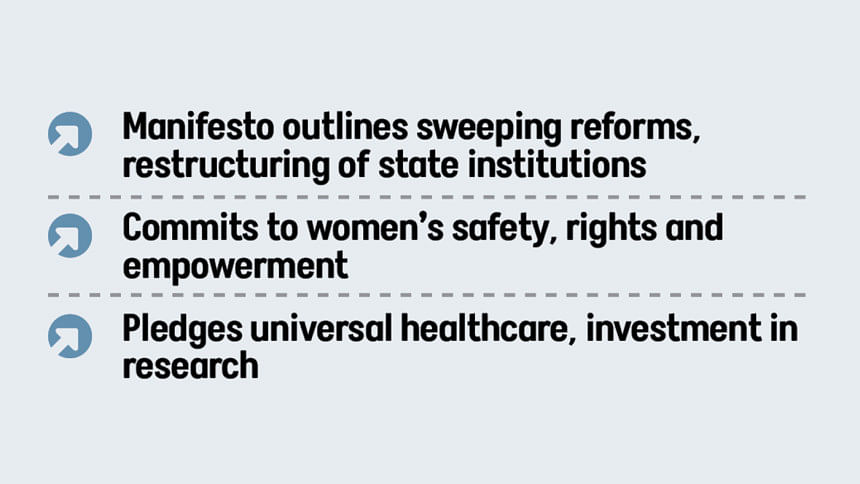
The NCP's idea of a new Bangladesh is grounded in the people's aspirations for equality, human dignity, and social justice reflected in the anti-colonial struggle, the war of independence, and the July mass uprising, he added.
"By casting off the old and embarking on a new journey for the state, our first pledge is to adopt a new constitution through a constituent assembly," the manifesto stated.

It said the new constitution would abolish dictatorship, dynastic rule, and fascist structures, and establish a discrimination-free, democratic, inclusive Second Republic oriented toward public welfare. It would ensure the separation and balance of powers among the executive, legislative, and judiciary, and grant constitutional recognition to the July Declaration and the July Charter.
"Our new state will protect the life, livelihood, dignity, and rights of every individual."
The party, born out of the July uprising that toppled the Hasina regime last year, pledged full state recognition for the July martyrs, proper medical treatment and rehabilitation for the injured, and lifelong support for them.
"We will ensure exemplary trials and punishment for all crimes against humanity committed during the era of Awami fascism -- including the genocide of July, the Shapla massacre, the BDR killings, enforced disappearances, and extrajudicial killings," the manifesto said.
"To honour the spirit of national unity in July and the supreme sacrifice of thousands of martyrs, we will preserve the memory of July and will always stand beside our comrades in the struggle against fascism."
The manifesto outlines sweeping reforms, starting with the restructuring of democratic and state institutions, ensuring a justice system based on fairness and legal reform, building a service-oriented and corruption-free administration, and establishing a people-friendly law enforcement system.
It also emphasises the need for village parliaments and stronger local governance, along with a free media and an active civil society.
Other key priorities include universal healthcare, a nation-building education policy, investment in research, innovation and a digital revolution, and upholding the dignity of religion, minority communities and ethnic identities.
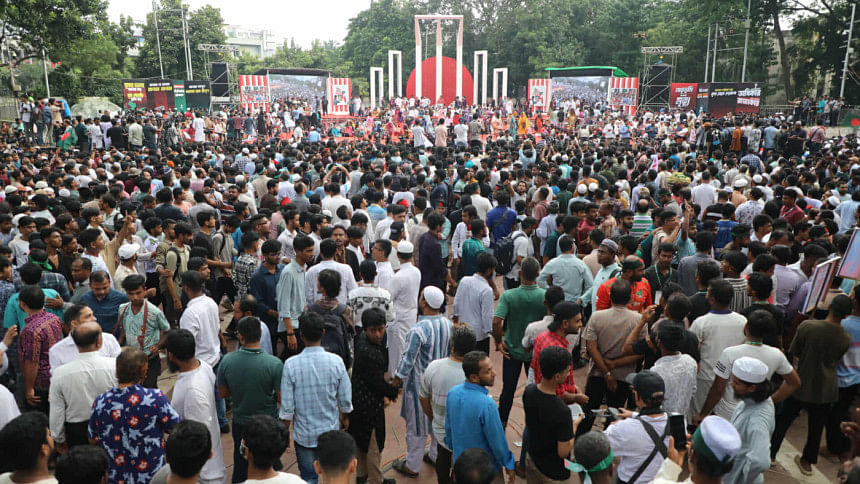
It also commits to women's safety, rights and empowerment, along with a human-centred and welfare-driven economy.
For the youth, the party promises greater employment opportunities, a multi-dimensional policy for trade and industrialisation, sustainable agriculture, and food sovereignty.
The manifesto also pledges to uphold the rights of workers and farmers, ensure sustainable management of national resources, and promote planned urbanisation, transport and housing.
In addition, it includes commitments to climate resilience and the protection of rivers and the sea, safeguarding the rights and dignity of Bangladeshi migrants abroad, adopting a foreign policy rooted in national interest, and developing a comprehensive national defence strategy.
Regarding the manifesto, NCP Convener Nahid said, "We dream of a new Bangladesh -- where every citizen can live with dignity, justice, security, and hope."
"These 24 points are not just promises, but commitments that can lead us toward a democratic, inclusive, and sovereign future," he added.
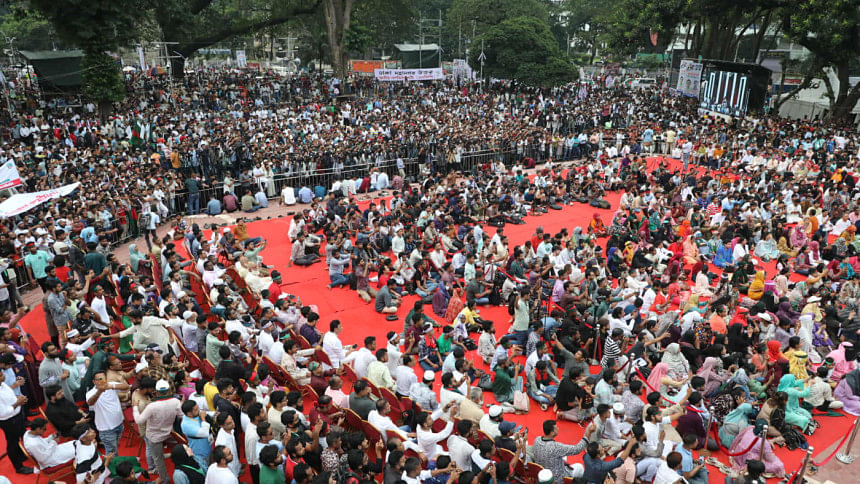
The NCP organised the rally demanding that the July Charter containing the reform proposals agreed upon by political parties be issued by August 5 and made legally binding.
A podium was set up at the centre of the venue, with hundreds of chairs on both sides where family members of the July martyrs and injured took their seats.
Central leaders sat on a red carpet laid out on the podium. Six large screens were installed at the venue, where the programme began at 5:00pm.
Leaders and activists streamed into the venue in small processions, carrying the national flag, festoons, and banners. By 3:30pm, a steady crowd had gathered.
Speaking at the event, NCP Member Secretary Akhter Hossen said the new generation that emerged from the July uprising would tackle any national crisis even at the cost of their lives.
"We want a state system where every public representative -- from the prime minister to union members -- must be accountable to the people," he said.
He stressed the need for freeing the judiciary and administration from political influence and ensuring transparent policymaking on public interest.
Akhter also urged constitutional recognition of the July Charter through a legal framework order and called on the interim government to implement key reforms.
NCP Chief Coordinator Nasir Uddin Patwari said Bangladesh must reject "subservient foreign policy" and unite with the oppressed people globally, with a vow to lead regional peace efforts.
Chief Coordinator (South) Hasnat Abdullah said no threat can stop the movement, warning that any harassment of NCP activists will be dealt with politically.
He urged party members to be ready to give their lives, if necessary, to implement the directives of the party's convener and member secretary.
Chief Coordinator (North) Sarjis Alam said, "NCP's struggle will not stop until the Mujibist constitution is dismantled, a new constitution is established, and justice is served for the blood of the martyrs."
Other speakers included NCP leaders Tasnim Jara, Ariful Islam Adib, Nahida Sarwar Niva, Abdul Hannan Masud, Anik Roy, and Nizam Uddin.

 For all latest news, follow The Daily Star's Google News channel.
For all latest news, follow The Daily Star's Google News channel. 





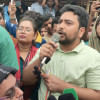
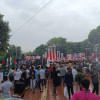


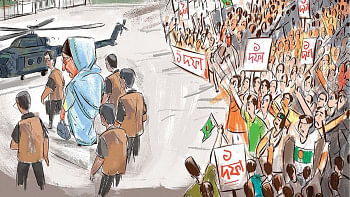
Comments